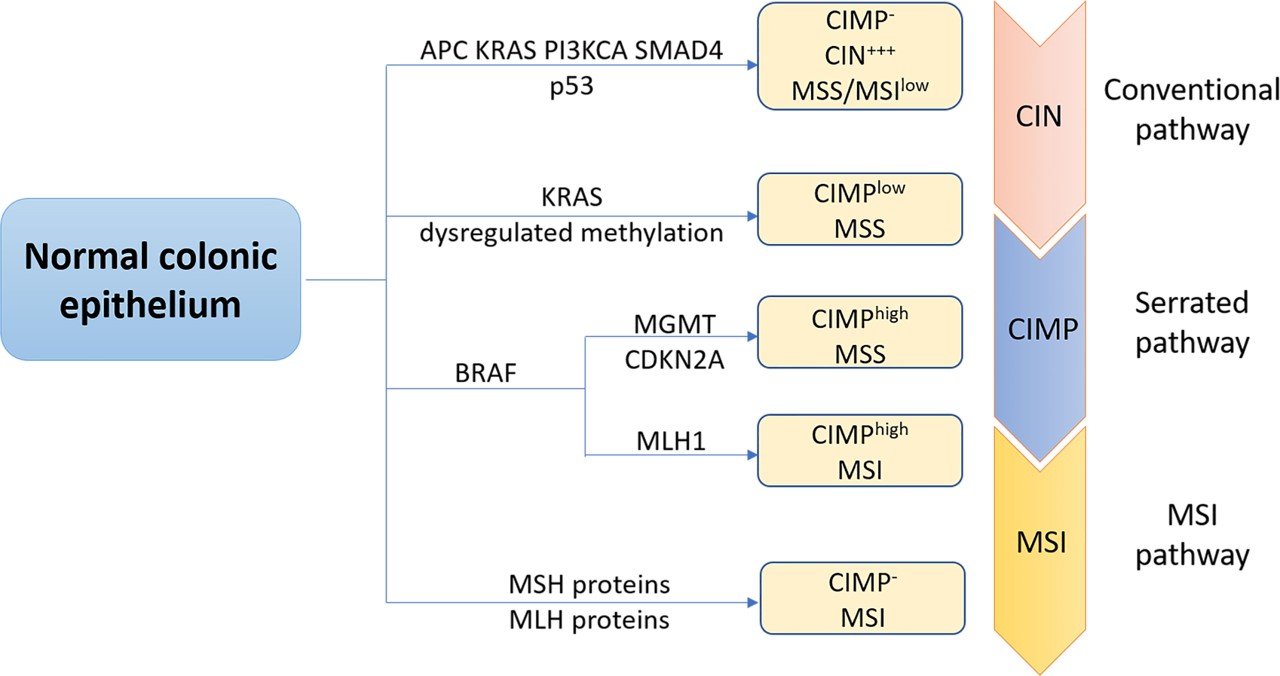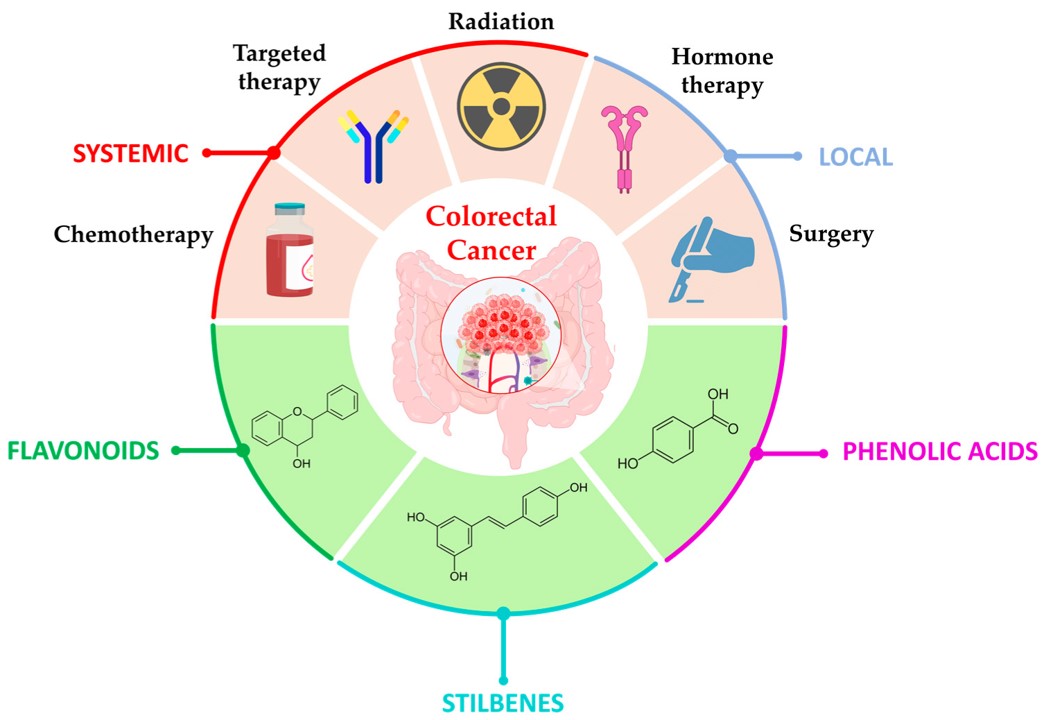Product List Background
Background
Colorectal cancer (CRC) is a cancer influencing the colon or rectum, often arising from adenomatous polyps. It ranks among the most prevalent cancers globally, with significant morbidity and mortality. CRC incidence varies geographically and is more common in developed nations. Early detection via screening is essential for improving outcomes, as symptoms often manifest late in the disease course.
Symptoms and Risk Factors of CRC
CRC symptoms may manifest as changes in bowel habits, like persistent diarrhea or constipation, blood in the stool, abdominal discomfort, and unexplained weight loss. 75-95% of CRC cases are in people with little or no inherited risk. Risk factors include age (over 50), a family history of CRC or polyps, inflammatory bowel diseases (IBD), obesity, smoking, a diet rich in red or processed meats, and lack of physical activity. In addition, some pathogenic bacteria can produce genotoxic metabolites, thereby increasing the risk of CRC.
Molecular Mechanisms of CRC
CRC exhibits diverse molecular mechanisms leading to its genesis and progression. Chromosomal instability (CIN) involves frequent chromosomal aberrations and aneuploidy, impacting key tumor suppressors (e.g., APC, TP53) and oncogenes (e.g., KRAS). CpG island methylator phenotype (CIMP) represents the widespread hypermethylation of CpG islands in gene promoter regions, which silences tumor suppressor genes like MLH1 and CDKN2A. Microsatellite instability (MSI), characterized by defective DNA mismatch repair (MMR), leads to mutations in genes such as MLH1 and MSH2.
These molecular alterations affect critical pathways like Wnt signaling (via APC), MAPK signaling (via KRAS), and DNA repair mechanisms (via MMR proteins). Dysregulation in these pathways promotes cell proliferation, survival, and evasion of apoptosis, driving CRC progression. Understanding these molecular mechanisms not only aids in subtype classification but also informs targeted therapies, such as anti-EGFR treatments in MSI-high tumors or demethylating agents in CIMP-positive CRCs, highlighting the importance of personalized medicine in CRC management.
 Fig.1 The three major molecular pathways of CRC.1
Fig.1 The three major molecular pathways of CRC.1
Diagnosis and Staging of CRC
Diagnosis of CRC typically involves colonoscopy with biopsy to confirm tissue pathology. Imaging modalities like CT scans and MRI assess tumor extent and metastasis. Biomarkers like CEA and CA 19-9 aid in evaluating therapy response and detecting recurrence. Staging, crucial for treatment planning, uses TNM classification (tumor, node, metastasis) based on the initial tumor's spread and metastases in lymph nodes and more distant organs. Multidisciplinary approaches integrate these methods to guide optimal management strategies for CRC patients.
Therapies for the Treatment of CRC
Treatment for CRC is determined by factors such as stage, location, and molecular characteristics of the tumor. Early-stage CRC may be curable with surgery alone, while advanced stages often require multimodal approaches. Chemotherapy, using agents like fluoropyrimidines, oxaliplatin, and irinotecan, targets rapidly dividing cancer cells. Most metastatic CRCs can be treated with combination therapies of cytotoxic drugs and targeted biologics to improve efficacy. Targeted therapies like monoclonal antibodies or proteins against EGFR and VEGF are used in specific molecular subtypes. Alternative therapies, such as the use of agarose tumor macrobeads, anti-inflammatory drugs, probiotics, and gold-based drugs, offer promising avenues for patients resistant to standard treatments.
 Fig.2 Therapeutic approaches for CRC.2
Fig.2 Therapeutic approaches for CRC.2
Creative Biolabs provides several high-affinity aptamers targeting colorectal cancer (CRC) that ensure reliable detection and precise analysis to accelerate your scientific research.
Reference
-
Huang, Zhe, and Mingli Yang. "Molecular network of colorectal cancer and current therapeutic options." Frontiers in oncology 12 (2022): 852927.
-
Wahnou, Hicham, et al. "Polyphenol-based nanoparticles: a promising frontier for enhanced colorectal cancer treatment." Cancers 15.15 (2023): 3826.


 Datasheet
Datasheet Fig.1 The three major molecular pathways of CRC.1
Fig.1 The three major molecular pathways of CRC.1
 Fig.2 Therapeutic approaches for CRC.2
Fig.2 Therapeutic approaches for CRC.2
